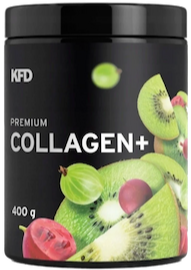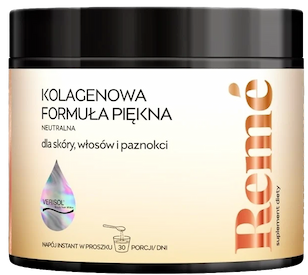Collagen for women (including those who are pregnant or nursing) 2025
Check out the best collagens for women to take care of your beauty.


Learn more about our editorial process
.

Learn more about our editorial process
.

Learn more about our editorial process
.

Learn more about our editorial process
.
Why you can trust us
Articles on Natu.Care are written based on scientific research, data from government websites and other reliable sources. The texts are written in cooperation with doctors, nutritionists and other health and beauty experts. Articles are reviewed before publication and during significant updates.
.Learn more about our editorial process
.Information about advertisements
Content on Natu.Care may contain links to products from the sale of which we may receive a commission. When creating content, we adhere to high editorial standards and take care to be objective about the products discussed. The presence of affiliate links is not dictated by our partners, and we select the products we review ourselves completely independently.
.Learn more about our terms and Conditions
.Collagen is an animal protein that we have less and less of in our modern diet. Who has time to cook broths, make cold legs and boil tripe? (Well, and fewer and fewer of us are enjoying such flavours!)
You may be concerned that your diet too is lacking this critical building block. You know that collagen can be supplemented, but the very word 'supplement' raises some doubts in your mind.
You're not sure.
There is no need to worry. We'll tell you what you can count on, what to avoid, and we'll show you the scientific research for everything.
From this article you will learn:
- What is the best collagen for women and what to look for when choosing one. .
- How collagen for women works and whether everyone can take it.
- How collagen for women works and whether everyone can take it.
- Whether collagen for pregnant and breastfeeding women is safe.
- Whether collagen for women is safe.
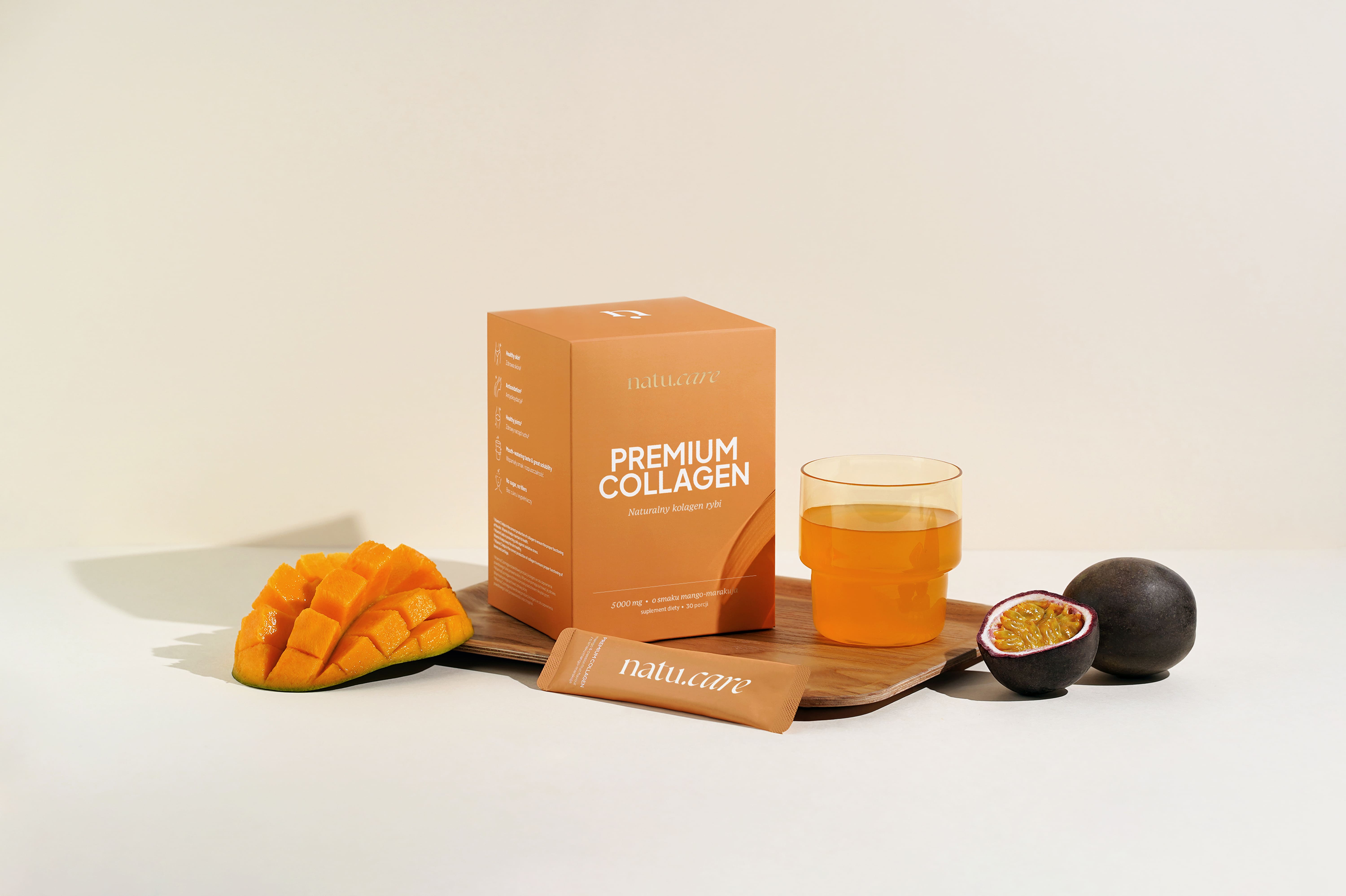
Sprawdź, za co pokochały go tysiące klientek Kolagen Premium 5000 mg, mango-marakuja
Natu.Care Kolagen Premium 5000 mg, mango-marakuja
Natu.Care Kolagen Premium dla zdrowia stawów, skóry, paznokci i włosów. Najlepsza przyswajalność. Optymalna dawka 5 000 lub 10 000 mg. Przebadany przez niezależne laboratorium.
Zobacz więcej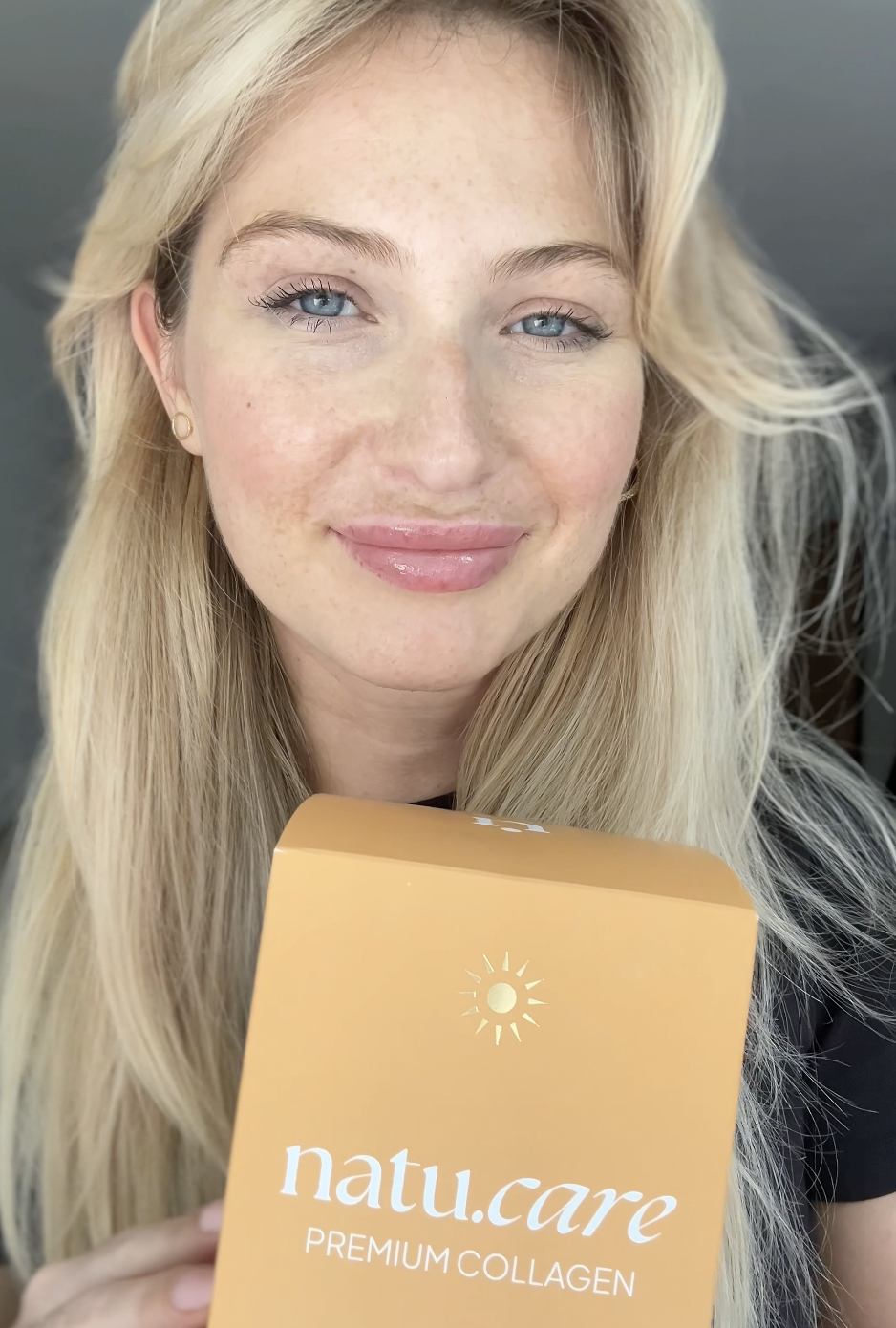
Wybrałam kolagen Natu.Care, ponieważ miał super opinie – a to było dla mnie bardzo ważne! Odkąd go stosuję, moja skóra znacznie się poprawiła i jest nawilżona, a na głowie pojawiły się nowe "baby hair".@Kasia S.
See also:
.
- The best collagen on the market .
- Best facial collagen
- Best collagen for the skin
- Best collagen for hair
- Best collagen for wrinkles
- Best collagen for cellulite
- Best collagen for acne
- Best collagen for stretch marks
- Best collagen for joints
- Best collagen for bones
- Best collagen for tendons
- Best collagen to drink andcollagen to drink (effects)
What collagen for women?
.
The best collagen for women is hydrolysed fish collagen type I. Hydrolysis breaks down collagen into small elements, making the supplement better absorbed. In turn, the marine origin indicates up to 50% better absorption (compared to bovine). And type I makes up as much as 90% of the collagen in the bodyand.
Best collagen for women - ranking
.
Natu.Care Collagen Premium 5000 mg, mango-maracuja

- Collagen content: 5000 mg marine collagen hydrolysate
- .
- Additional active ingredients: vitamin C, low molecular weight hyaluronic acid (and L-theanine and coenzyme Q10 in cocoa flavoured collagen or vitamin A and vitamin E in mango–passion fruit flavoured collagen)
- .
- Form: powder sachets
- .
- Dose: 1 sachet per day
- .
- Sufficient for: 30 days
- .
Product description
Fish collagen from the Natu.Care brand in a dose of 5000 mg. The formula contains a sufficient portion of the active substance to positively affect your joints, musculoskeletal system and immunity.
Take care of your tendons, joint cartilage, ligaments, muscles and even bones by supplying them with the building blocks to function properly. Move without bólu and provide the necessary support for any physical activity.
And as a „gratis” to regular supplementation, you will also receive firm skinóhand, healthy and shiny hair and strong nails.
Natu.Care Premium Collagen is available in two flavours – Cacao Bloom and Rise&Shine. Both formulas are based on the following active ingredients: marine collagen hydrolysate, wild roseóbud extract and hyaluronic acid.
Additionally, Cacao Bloom contains natural L-theanine, coenzyme Q10 and defatted Dutch cacao. Rise&Shine instead contains vitamin E and vitamin A.
These are the best collagens in the world.
These best fish collagens on the market also rós taste – Cacao Bloom is a treat for chocolate lovers. Rise&Shine will appeal to those whoóenjoy the refreshing taste of mangoófruit and passion fruit.
Pros and cons
Fish collagen from the Natu.Care brand in a dose of 5000 mg. The formula contains a sufficient portion of the active substance to positively affect your joints, musculoskeletal system and immunity.
Take care of your tendons, joint cartilage, ligaments, muscles and even bones by supplying them with the building blocks to function properly. Move without bólu and provide the necessary support for any physical activity.
And as a „gratis” to regular supplementation, you will also receive firm skinóhand, healthy and shiny hair and strong nails.
Natu.Care Premium Collagen is available in two flavours – Cacao Bloom and Rise&Shine. Both formulas are based on the following active ingredients: marine collagen hydrolysate, wild roseóbud extract and hyaluronic acid.
Additionally, Cacao Bloom contains natural L-theanine, coenzyme Q10 and defatted Dutch cacao. Rise&Shine instead contains vitamin E and vitamin A.
These are the best collagens in the world.
These best fish collagens on the market also rós taste – Cacao Bloom is a treat for chocolate lovers. Rise&Shine will appeal to those whoóenjoy the refreshing taste of mangoófruit and passion fruit.
Additional information
Fish collagen from the Natu.Care brand in a dose of 5000 mg. The formula contains a sufficient portion of the active substance to positively affect your joints, musculoskeletal system and immunity.
Take care of your tendons, joint cartilage, ligaments, muscles and even bones by supplying them with the building blocks to function properly. Move without bólu and provide the necessary support for any physical activity.
And as a „gratis” to regular supplementation, you will also receive firm skinóhand, healthy and shiny hair and strong nails.
Natu.Care Premium Collagen is available in two flavours – Cacao Bloom and Rise&Shine. Both formulas are based on the following active ingredients: marine collagen hydrolysate, wild roseóbud extract and hyaluronic acid.
Additionally, Cacao Bloom contains natural L-theanine, coenzyme Q10 and defatted Dutch cacao. Rise&Shine instead contains vitamin E and vitamin A.
These are the best collagens in the world.
These best fish collagens on the market also rós taste – Cacao Bloom is a treat for chocolate lovers. Rise&Shine will appeal to those whoóenjoy the refreshing taste of mangoófruit and passion fruit.
User review
Fish collagen from the Natu.Care brand in a dose of 5000 mg. The formula contains a sufficient portion of the active substance to positively affect your joints, musculoskeletal system and immunity.
Take care of your tendons, joint cartilage, ligaments, muscles and even bones by supplying them with the building blocks to function properly. Move without bólu and provide the necessary support for any physical activity.
And as a „gratis” to regular supplementation, you will also receive firm skinóhand, healthy and shiny hair and strong nails.
Natu.Care Premium Collagen is available in two flavours – Cacao Bloom and Rise&Shine. Both formulas are based on the following active ingredients: marine collagen hydrolysate, wild roseóbud extract and hyaluronic acid.
Additionally, Cacao Bloom contains natural L-theanine, coenzyme Q10 and defatted Dutch cacao. Rise&Shine instead contains vitamin E and vitamin A.
These are the best collagens in the world.
These best fish collagens on the market also rós taste – Cacao Bloom is a treat for chocolate lovers. Rise&Shine will appeal to those whoóenjoy the refreshing taste of mangoófruit and passion fruit.
Natu.Care Collagen Premium 10000 mg, cherry

- Collagen content: 10,000 mg of hydrolyzed bovine collagen
- Additional active ingredients: vitamin C, low molecular weight hyaluronic acid, glucosamine, chondroitin, extract of Indian frankincense resin (boswellia serrata)
- Form: powder sachets for drinking
- Serving: 1 sachet per day
- Lasts for: 30 days
Product description
One of the strongest collagens on the market, providing as much as 10,000 mg per daily serving. This product can effectively support the condition of joints, skin, hair, and nails.
With this supplement, you will support your skeletal and joint system as well as your beauty, helping you visually halt the aging process and feel rejuvenated!
Pros and cons
Pros:
- The daily portion of collagen is very large – as much as 10,000 mg.
- Proven collagen formula – COLLinstant, whose effectiveness has been confirmed in clinical studies.
- Effective dose of hyaluronic acid, which additionally moisturizes the skin and positively affects joint health.
- Vitamin C supports the body's natural collagen production.
- Glucosamine is a fundamental building block of compounds found in joint cartilage and a component of collagen that gives elasticity to connective tissue in tendons.
- Chondroitin is a natural component found in the human body, mainly in cartilage. This large molecule (mucopolysaccharide) has the ability to absorb water, which helps maintain the elasticity and resilience of cartilage.
- Frankincense resin extract supports blood circulation and joint mobility and reduces their stiffness. It may help alleviate inflammatory conditions.
- The composition has been tested by the independent and accredited J.S. Hamilton laboratory.
Cons:
- None.
Additional information
Users praise Natu.Care Collagen Premium for the easy dissolving of the powder.
ALLDEYNN Collarose Fish
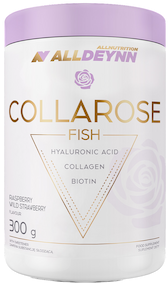
- Collagen content: 5000 mg hydrolysate fish collagen VERISOL F® .
- Additional active ingredients: vitamin C, hyaluronic acid, biotin
- Form: powder to dissolve in water .
- Dose: one scoop (6 g) of powder daily .
- Sufficient for: 50 days .
Product description
Atlantic cod collagen VERISOL F® contained in the formula are easily absorbed collagen peptides of fish origin. Regular supplementation can firm your skinóhand and slow down the ageing process. Your nails will become stronger and stop breaking. The addition of biotin will improve the condition of your hairów. The collagen portion is high enough to also have a good effect on your joints, muscles and bones.
Pros and cons
Atlantic cod collagen VERISOL F® contained in the formula are easily absorbed collagen peptides of fish origin. Regular supplementation can firm your skinóhand and slow down the ageing process. Your nails will become stronger and stop breaking. The addition of biotin will improve the condition of your hairów. The collagen portion is high enough to also have a good effect on your joints, muscles and bones.
Additional information
Atlantic cod collagen VERISOL F® contained in the formula are easily absorbed collagen peptides of fish origin. Regular supplementation can firm your skinóhand and slow down the ageing process. Your nails will become stronger and stop breaking. The addition of biotin will improve the condition of your hairów. The collagen portion is high enough to also have a good effect on your joints, muscles and bones.
Expert and user opinion
Atlantic cod collagen VERISOL F® contained in the formula are easily absorbed collagen peptides of fish origin. Regular supplementation can firm your skinóhand and slow down the ageing process. Your nails will become stronger and stop breaking. The addition of biotin will improve the condition of your hairów. The collagen portion is high enough to also have a good effect on your joints, muscles and bones.
DuoLife Collagen fish collagen 2500 mg
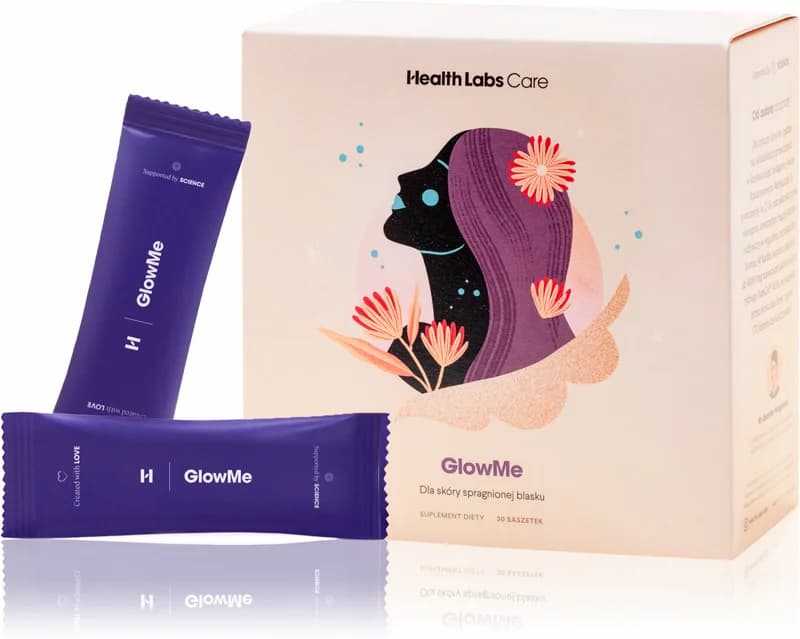
- Collagen content: 2500 mg collagen
- Additional active ingredients: vitamin C, silicon, glucosamine, hyaluronic acid, nettle and bamboo extracts
- Form: liquid to drink .
- Dose:25 ml .
- Sufficient for: 30 days .
Product description
100% natural collagen liquid without unnecessary ingredientsós. The composition of ingredientsós improves the appearance and condition of skinóry, hairów, nails. DuoLife is a good choiceór if you notice the first signs of skinóry ageing or want to stop this process. A tasty liquid, convenient to use.
Pros and cons
100% natural collagen liquid without unnecessary ingredientsós. The composition of ingredientsós improves the appearance and condition of skinóry, hairów, nails. DuoLife is a good choiceór if you notice the first signs of skinóry ageing or want to stop this process. A tasty liquid, convenient to use.
Additional information
100% natural collagen liquid without unnecessary ingredientsós. The composition of ingredientsós improves the appearance and condition of skinóry, hairów, nails. DuoLife is a good choiceór if you notice the first signs of skinóry ageing or want to stop this process. A tasty liquid, convenient to use.
User review
100% natural collagen liquid without unnecessary ingredientsós. The composition of ingredientsós improves the appearance and condition of skinóry, hairów, nails. DuoLife is a good choiceór if you notice the first signs of skinóry ageing or want to stop this process. A tasty liquid, convenient to use.
Pharmovit liquid collagen 10000 mg
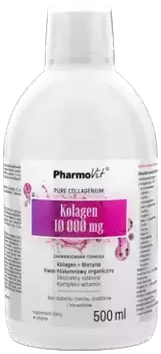
- Collagen content: 10000 mg hydrolysed bovine collagen types I and III .
- Additional active ingredients: hyaluronic acid, natural plant extracts, vitamin C, B vitamins, zinc, vitamin D
- Form: vials .
- Dose: 25 ml .
- Sufficient for: 20 days .
Product description
A solid daily dose of collagen for jointómuscle and bone health and beauty. The duo of collagen and vitamin C has a positive effect on each other, so that „the protein of youth” is better absorbed and more efficiently produced in the body.
Pros and cons
A solid daily dose of collagen for jointómuscle and bone health and beauty. The duo of collagen and vitamin C has a positive effect on each other, so that „the protein of youth” is better absorbed and more efficiently produced in the body.
Additional information
A solid daily dose of collagen for jointómuscle and bone health and beauty. The duo of collagen and vitamin C has a positive effect on each other, so that „the protein of youth” is better absorbed and more efficiently produced in the body.
KFD Premium Collagen+
Product description
High dose of collagen and a real bomb of vitamins C and D and organic sulphur. With this preparation the effects will come immediately. You will improve the firmness of your skin and reduce wrinkles. Your hair and nails will be strong and shiny.
A generous dose of collagen will improve the mobility of your jointsós, benefit your bone system and muscles. Do you do sports and need a product thatós able to keep up with your needs? This product will do the trick.
Pros and cons
High dose of collagen and a real bomb of vitamins C and D and organic sulphur. With this preparation the effects will come immediately. You will improve the firmness of your skin and reduce wrinkles. Your hair and nails will be strong and shiny.
A generous dose of collagen will improve the mobility of your jointsós, benefit your bone system and muscles. Do you do sports and need a product thatós able to keep up with your needs? This product will do the trick.
Additional information
High dose of collagen and a real bomb of vitamins C and D and organic sulphur. With this preparation the effects will come immediately. You will improve the firmness of your skin and reduce wrinkles. Your hair and nails will be strong and shiny.
A generous dose of collagen will improve the mobility of your jointsós, benefit your bone system and muscles. Do you do sports and need a product thatós able to keep up with your needs? This product will do the trick.
Expert opinion
High dose of collagen and a real bomb of vitamins C and D and organic sulphur. With this preparation the effects will come immediately. You will improve the firmness of your skin and reduce wrinkles. Your hair and nails will be strong and shiny.
A generous dose of collagen will improve the mobility of your jointsós, benefit your bone system and muscles. Do you do sports and need a product thatós able to keep up with your needs? This product will do the trick.
Product description
The dietary supplement from Remé contains beef collagen in a patented formula and vitamin C, whichóra aids its absorption. The formula comes in three flavours: neutral, orange-maracuja and strawberry-pomegranate. The formula can effectively support and improve the condition of the skinóry, hairóry and nails.
Pros and cons
The dietary supplement from Remé contains beef collagen in a patented formula and vitamin C, whichóra aids its absorption. The formula comes in three flavours: neutral, orange-maracuja and strawberry-pomegranate. The formula can effectively support and improve the condition of the skinóry, hairóry and nails.
Additional information
The dietary supplement from Remé contains beef collagen in a patented formula and vitamin C, whichóra aids its absorption. The formula comes in three flavours: neutral, orange-maracuja and strawberry-pomegranate. The formula can effectively support and improve the condition of the skinóry, hairóry and nails.
The dietary supplement from Remé contains beef collagen in a patented formula and vitamin C, whichóra aids its absorption. The formula comes in three flavours: neutral, orange-maracuja and strawberry-pomegranate. The formula can effectively support and improve the condition of the skinóry, hairóry and nails.
{ product:1eiyihgASLfslgpBv80Tk1 }}
{ product:3A6Dp6540L63Y3msHqwQCz }}
See also:
.
- What collagen to choose
- Drinking collagen
- Collagen powder
- Collagen in sachets
- Collagen in tablets
- Collagen in capsules
- Collagen in liquid form
- Collagen in sachets
- Marine collagen (marine collagen)
- Collagen medicine
- Liophilised collagen .
How does collagen work for women?
.
Collagen (English: collagen) for women plays an important role in the overall health and appearance of the body. It has functions in maintaining the elasticity and firmness of connective tissue.
As one of the key structural proteins in the body, collagen affects many aspects of health, and a deficiency can lead to visible changes in the appearance of skin, hair and nails. How does collagen work for women?
Improves skin elasticity
.
Collagen protein helps maintain skin firmness and elasticity. As we age, its production declines, leading to a loss of elasticity and the appearance of wrinkles. Collagen supplementation can delay the skin's ageing process. The result will be firmer, smoother and hydrated skinand.
Strengthens hair and nails
.
Hair and nails contain keratin, which interacts with collagen fibres. Collagen makes hair stronger, thicker and healthier, and nails less prone to breakage.
Collagen supplementation can reduce brittleness and increase hydration levels of hair and nails, as well as contribute to more intense growthand.
See also:
.
Minimises cellulite
.
Collagen affects the structure of the skin and thus minimises cellulite. As collagen production is reduced, the skin becomes thinner and less elastic, which can lead to an increase in the appearance of celluliteand.
Collagen supplementation can improve the elasticity of the skin, thus enabling a reduction in the appearance of fatty tissue, which is responsible for the appearance of cellulite.
See also:
Reduces the visibility of scars
.
Collagen plays a key role in the healing process, helping to regenerate tissue and minimise scar formation. This action is particularly important in burns, wounds or other skin injuries that can lead to permanent marksand.
Regular collagen supplementation can speed up the healing process and make scarring more difficult.
See also:
.
Promotes joint health
.
Collagen affects cartilage health, which is important for joint health. Supporting collagen production can help reduce joint pain and the risk of diseases such as arthritisand.
Long-term use of collagen supplements can reduce joint pain and improve joint flexibility, resulting in greater movement comfort.
See also:
.
How to choose collagen for women?
.
When choosing a collagen supplement for women, it is worth focusing on a few key factors to ensure its effectivenessand:
- Collagen content. Optimal formulations contain between 2.5 and 15 grams of collagen hydrolysate to ensure the effectiveness of the supplement .
- Purity of formulation. When choosing a supplement, look out for the absence of unnecessary preservatives, colourings and other additives that can have an adverse effect on the body.
- Support with additional ingredients. Some supplements are enriched with vitamins and minerals, such as vitamin C, which support the synthesis and absorption of collagen in the body.
- Laboratory testing. It is worth looking for formulations that have laboratory testing to confirm their composition and safe use.
- Adequate form of supplementation. Various forms of collagen are available: powder, liquid, tablets or creams. It is advisable to avoid collagen creams, as they are less effective than the other forms. In turn, the choice between powder, tablets and liquid is yours. .
- Ecological origin. Some manufacturers source collagen from farmed fish, others from wild animals, taking care of the environment. When choosing collagen, it's worth paying attention to its source.
See also:
Why does collagen in cream for women not work?
.
Applying collagen to the skin (directly), as with creams, will not have the desired effect, as the collagen molecules are too large to penetrate the deeper layers of the skin. Collagen applied externally may only have a temporary effect on skin firmness and hydration, but will not provide lasting supportand.
The use of collagen in the form of creams does not provide the lasting results that may be suggested by manufacturers. Although such creams can make the skin more moisturised and smooth, these effects are temporary because the large collagen molecule is unable to penetrate the skin's protective layer.
 .
.
Witold Tomaszewskidoctor of medical sciences
.See also:
.
How to use collagen for women
.
Collagen should be taken as recommended by the manufacturer, doctor or pharmacist. The exact dosage depends on the specific product and the recommended values should not be exceededand.
Although overdosing on collagen is rare, it is not difficult for you to overdose on the additional nutrients contained in collagen supplements (for example, vitamins and minerals).
How long can you supplement collagen for women?
.
Collagen can be used without interruption in supplementation. The first results of taking this protein may appear after 8-24 weeks of regular supplementationand.
If you don't notice results after this time, it's worth considering switching to a more effective product (for example, one that contains 10,000 mg of collagen hydrolysate).
See also:
.
Collagen in pregnancy
.
Collagen is a natural protein in the body. Despite this, there are no studies to test its effects on pregnancy. This preparation is therefore neither authorised nor contraindicated. Therefore, exercise caution and consult your healthcare practitioner before starting or continuing supplementation.
Although collagen is a naturally occurring protein in the human body, there are insufficient scientific studies on the safety and possible benefits of collagen supplementation during pregnancy.
Additional active ingredients (e.g. vitamins and minerals) in supplements or allergies of the mother-to-be, e.g. to fish, or seafood, may be an obstacle.
Before taking collagen or any other supplementation during pregnancy, it is best to consult a specialist who is aware of the individual situation and health needs of the mother-to-be.
Collagen and breastfeeding
.
Collagen is safe for most women who are breastfeeding. However, there is a lack of scientific studies verifying the effects of this supplement on the body during this period. Therefore, always exercise caution and consult a doctor or specialist (e.g. lactation) before starting supplementation.
It is also worth considering the source of collagen (fish, beef or chicken) and any allergies.
What are the contraindications to the use of collagen for women?
.
Collagen for women is safe for most people. However, in some cases, these supplements should be taken with caution or discontinued.
Contraindications to the use of collagenfor womenand:
.
- .
- pregnancy and breastfeeding period, .
- kidney and liver diseases, .
- allergies to the ingredients of the preparation, .
- autoimmune disorders, .
- adherence to selected medications, .
- gastrointestinal problems, .
Can there be side effects with collagen supplementation for women?
.
Yes, however, they are rare and usually mild. The most common are allergic reactions, which include skin rashes, itching or swelling. Occasionally, stomach discomfort such as bloating or nausea may also occurand. In the vast majority of cases, the discomfort will pass when the supplement is discontinued.
.
Is there vegan collagen for women?
.
No. Collagen for women is a protein derived from animal sources and therefore all collagen supplements are not suitable for vegetarians or vegans.
Nevertheless, scientists are working on genetically modified collagen derived from yeast or bacteriaand.
.
Research is also underway to develop a 'plant-based' collagen that could be produced from bamboo or rice.

Sprawdź, za co pokochały go tysiące klientek Kolagen Premium 5000 mg, mango-marakuja
Natu.Care Kolagen Premium 5000 mg, mango-marakuja
Natu.Care Kolagen Premium dla zdrowia stawów, skóry, paznokci i włosów. Najlepsza przyswajalność. Optymalna dawka 5 000 lub 10 000 mg. Przebadany przez niezależne laboratorium.
Zobacz więcej
Wybrałam kolagen Natu.Care, ponieważ miał super opinie – a to było dla mnie bardzo ważne! Odkąd go stosuję, moja skóra znacznie się poprawiła i jest nawilżona, a na głowie pojawiły się nowe "baby hair".@Kasia S.
See also:
.
- The most powerful collagen .
- Properties of collagen
- What destroys collagen in the body .
- How to replenish collagen
- When to drink collagen
- How to rebuild collagen
- Collagen diet
- Norwegian collagen
- Natural collagen
- Collagen type 1,type 2 andtype 3
Summary
.
- The best collagen for women is hydrolysed fish collagen type I.
- The best collagen for women is hydrolysed fish collagen type I.
- Collagen for women, among other things, promotes skin elasticity, strengthens hair and nails, and minimises cellulite.
- The best collagen for women is type I.
- When choosing collagen for women, pay attention to, among other things, the dose of collagen, the purity of the formulation and additional active ingredients. .
- Collagen in cream does not work as the manufacturers claim. .
- Collagen for women can be supplemented continuously. .
- If you want to take collagen while pregnant or breastfeeding, consult your doctor. .
- Contraindications to collagen use include, but are not limited to, kidney and liver disease, gastrointestinal problems and allergies. .
- Side effects with collagen supplementation are rare. .
FAQ
.Do nuts have collagen?
.Nuts are not a source of collagen, but they do contain ingredients that support its production. The plant proteins, healthy fats or vitamins you find in them help improve the condition of skin, hair and nails.
This is why it is worth introducing nuts into your daily diet for better skin elasticity.
What are the symptoms of collagen deficiency in women?
.Symptoms of collagen deficiencyin the body include:
- wrinkles and loss of elasticity of skin, .
- brittle nails, .
- dry hair,
- painful joints and muscles, .
- digestive problems, .
- weakening of immunity, .
It may be a good idea to supplement collagen through diet and the use of supplements, such as Natu.Care Premium Collagen, Colladrop Flex, Sundose Collagen, or Colladrop Forte.
Does collagen for women rejuvenate?
.Yes, taking collagen for women can support the rejuvenation process. Taking this supplement helps to improve the elasticity of skin, reduce wrinkles and hydrate the complexion. The beneficial effects of collagen can also be seen in increases in bone density and muscle strength and volume.
It is worth supplying the body with collagen through the use of dietary supplements or the consumption of collagen-rich foods, such as bone broths and jellies. For better results, it is also a good idea to ensure a healthy diet, adequate hydration and regular exercise.
Is collagen safe?
.Yes, collagen is generally safe. However, remember to only buy supplements from reputable companies and always start with lower doses. Observe your body's reactions and then increase to the recommended dose, usually around 5-15g per day.
If side effects occur, consider reducing the dose or seeing your doctor. People at risk, such as pregnant or breastfeeding women, or those with autoimmune diseases, should consult their doctor before starting supplementation.
Provided the following information is available.
When does the body stop producing collagen?
.The body does not stop producing collagen completely, but its production decreases with age, usually starting at 25 years of age. As a result, you will observe a decrease in the firmness of skin, the appearance of wrinkles and fine lines, and a weakening of joints, tendons and ligaments.
Does alcohol damage collagen?
.Yes, too much alcohol consumption can negatively affect collagen structures. Alcohol leads to dehydration, which weakens collagen, especially in skin. The result is a reduction in skin firmness and elasticity, the appearance of wrinkles and hyperpigmentation. In addition, alcohol reduces the content of vitamin A in the body, which affects collagen production.
Restricting alcohol intake and keeping the body hydrated are key factors that promote adequate collagen in the body.
What collagen for women do we recommend?
.We recommend Premium Collagen by Natu.Care. This product contains 5,000 or 10,000 mg of collagen hydrolysate, and its quality is confirmed by laboratory tests. In addition, the formula is enriched with other active ingredients that complement its effects.
Natu.Care Premium Collagen is available in a choice of two flavours - cocoa and mango-maracuja, allowing you to customise your taste preferences.
.
Sources
.See all
.Abedin, Md. Z., Karim, A. A., Latiff, A. A., Gan, C.-Y., Ghazali, F. C., Barzideh, Z., Ferdosh, S., Akanda, Md. J. H., Zzaman, W., Karim, Md. R., & Sarker, Md. Z. I. (2014). Biochemical and radical-scavenging properties of sea cucumber (Stichopus vastus) collagen hydrolysates. Natural Product Research, 28(16), 1302-1305. https://doi.org/10.1080/14786419.2014.900617
Abrahams, M., O'Grady, R., & Prawitt, J. (2022). Effect of a Daily Collagen Peptide Supplement on Digestive Symptoms in Healthy Women: 2-Phase Mixed Methods Study. JMIR Formative Research, 6(5), e36339. https://doi.org/10.2196/36339
Bolke, L., Schlippe, G., Gerß, J., & Voss, W. (2019). A Collagen Supplement Improves Skin Hydration, Elasticity, Roughness, and Density: Results of a Randomized, Placebo-Controlled, Blind Study. Nutrients, 11(10), Article 10. https://doi.org/10.3390/nu11102494
Boyera, N., Galey, I., & Bernard, B. a. (1998). Effect of vitamin C and its derivatives on collagen synthesis and cross-linking by normal human fibroblasts. International Journal of Cosmetic Science, 20(3), 151-158. https://doi.org/10.1046/j.1467-2494.1998.171747.x
Li, P., & Wu, G. (2018). Roles of dietary glycine, proline, and hydroxyproline in collagen synthesis and animal growth. Amino Acids, 50(1), 29-38. https://doi.org/10.1007/s00726-017-2490-6
Proksch, E., Schunck, M., Zague, V., Segger, D., Degwert, J., & Oesser, S. (2013). Oral Intake of Specific Bioactive Collagen Peptides Reduces Skin Wrinkles and Increases Dermal Matrix Synthesis. Skin Pharmacology and Physiology, 27(3), 113-119. https://doi.org/10.1159/000355523
Saeedi, P., Shavandi, A., & Meredith-Jones, K. (2018). Nail Properties and Bone Health: A Review. Journal of Functional Biomaterials, 9(2), Article 2. https://doi.org/10.3390/jfb9020031
Sansilvestri-Morel, P., Rupin, A., Badier-Commander, C., Fabiani, J.-N., & Verbeuren, T. J. (2003). Chronic Venous Insufficiency: Dysregulation of Collagen Synthesis. Angiology, 54(1_suppl), S13-S18. https://doi.org/10.1177/0003319703054001S03
Skin collagen through the lifestages: Importance for skin health and beauty. (n.d.). Retrieved 15 June 2023, from https://parjournal.net/article/view/3863
Jelonek, L. (2023). Collagen. Everything you need to know (B. Turczynski, ed.; 1st ed.). Natu.Care. https://books.google.com/books?vid=9788396887801
..
Editorials
Meet the team


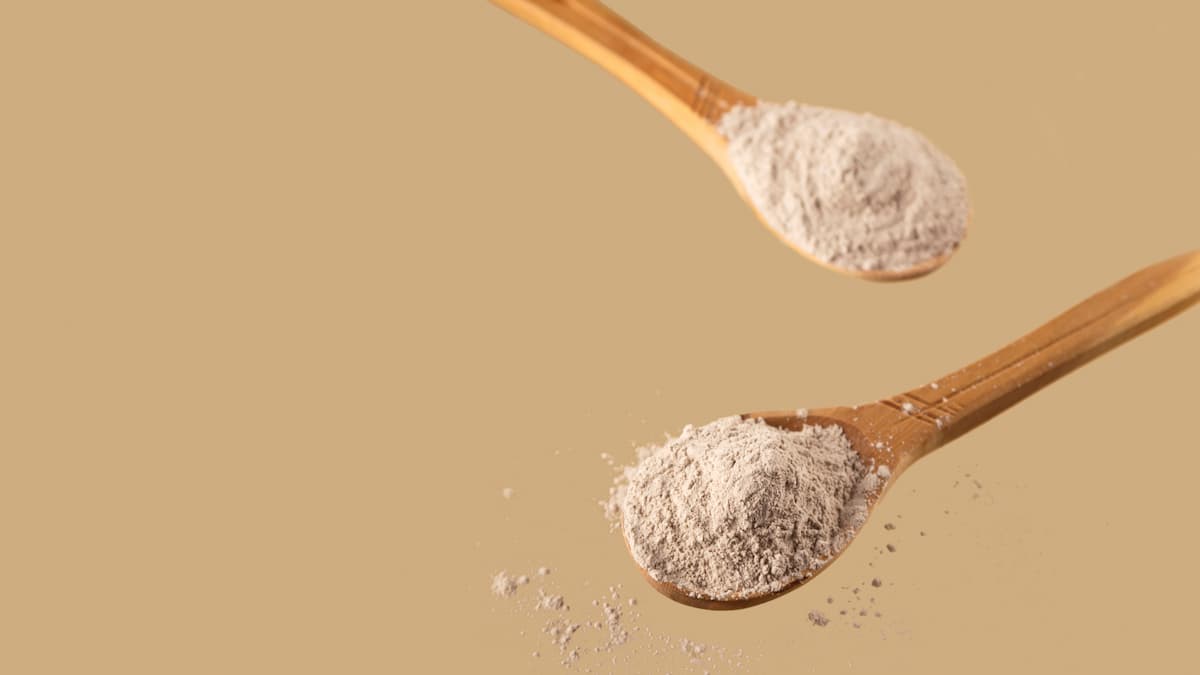
Everything you want to know about COLLinstant collagen.

Collibre collagen is an interesting supplement in shot form.
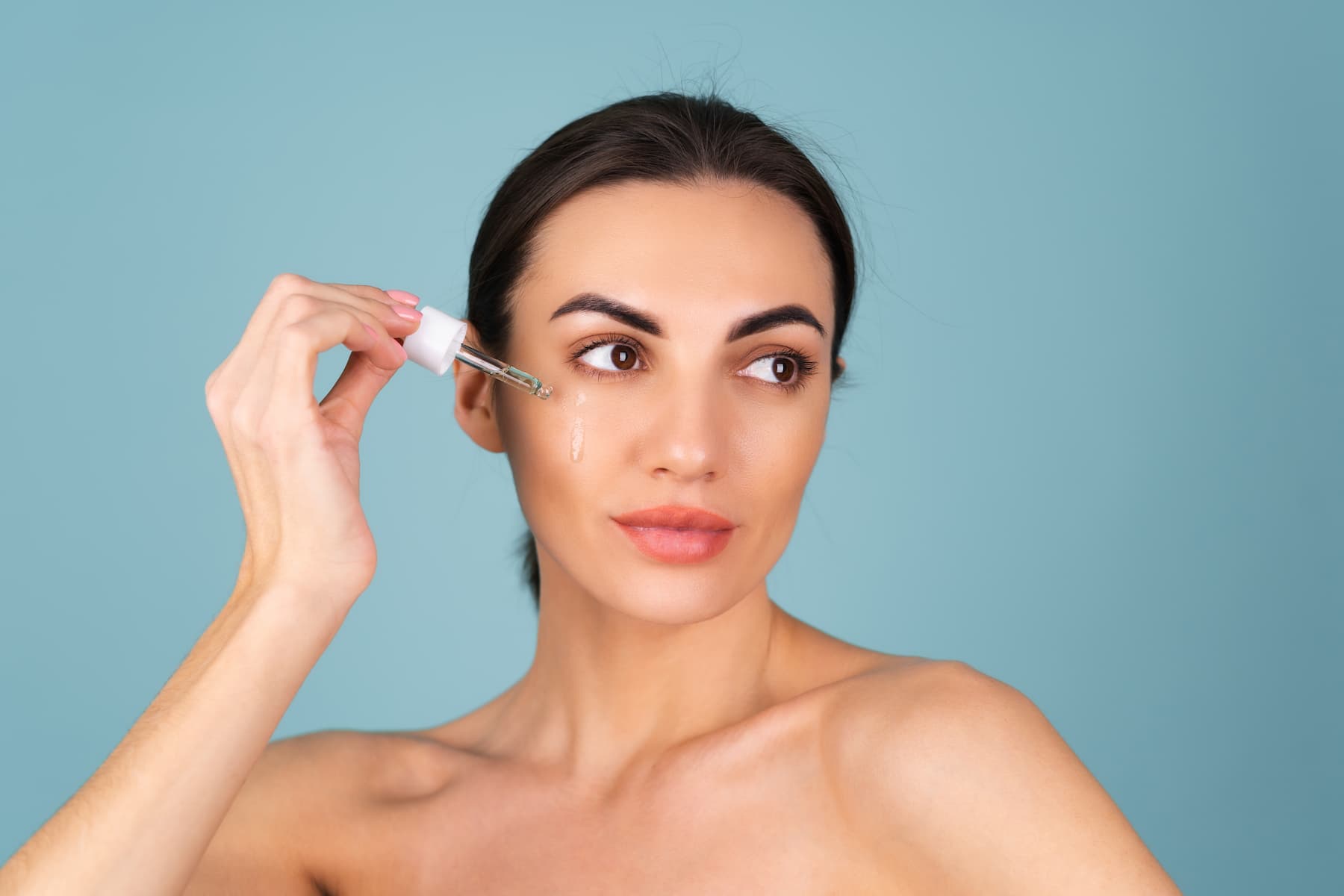
Solgar collagen with hyaluronic acid is a dietary supplement that supports skin and joint health.
